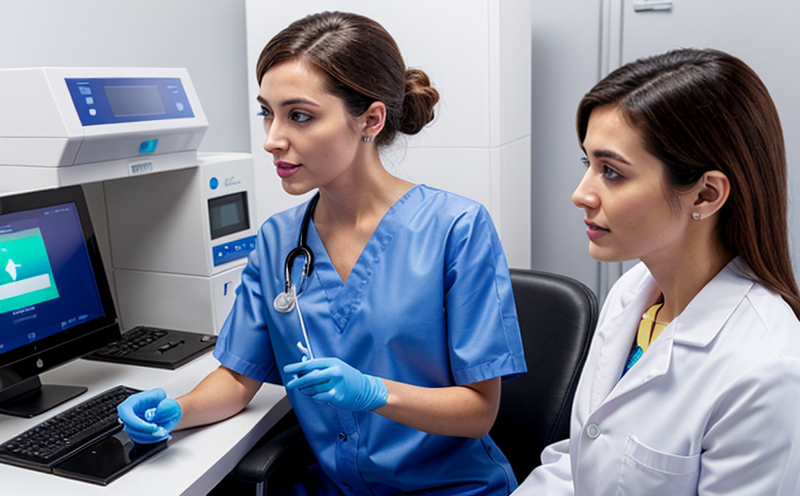PCR-Based Testing for Plant Pathogens in Agriculture
In the realm of agricultural production, ensuring plant health is paramount. The introduction and spread of plant pathogens can have devastating effects on crop yields and overall farm profitability. To address this challenge, PCR-based testing emerges as a robust solution. Polymerase Chain Reaction (PCR) technology allows for the precise amplification and detection of target DNA sequences within plant samples, making it an indispensable tool in identifying pathogenic organisms.
PCR tests are particularly advantageous because they offer high sensitivity, specificity, and speed. This method is used to identify a wide range of pathogens including fungi, bacteria, viruses, and phytoplasmas that can cause diseases like bacterial wilt, blackleg, and root rot in various crops such as tomatoes, potatoes, and wheat.
The process begins with the collection of plant samples from fields or nurseries. These samples are then processed using standardized protocols to extract DNA or RNA. The extracted nucleic acids serve as templates for PCR amplification. During this step, primers specific to the target pathogen's genetic material are used to initiate the reaction.
The amplified products are subsequently analyzed through electrophoresis on agarose gels, which allows visualization of the size and presence of the desired DNA fragments. This visual confirmation ensures accurate identification of the pathogens. Additionally, modern PCR machines can perform real-time quantitative PCR (qPCR), allowing for precise measurement of pathogen load in a sample.
This approach not only aids in early detection but also supports targeted management strategies to mitigate disease spread within and between farms. By leveraging PCR-based testing, agricultural stakeholders can enhance crop protection measures, optimize resource allocation, and ultimately ensure sustainable practices that bolster global food security.
Industry Applications
- Crop Protection: Identification of pathogens to tailor appropriate fungicides or other control methods.
- R&D Innovation: Monitoring the genetic diversity and evolution of plant pathogens over time.
- Supply Chain Management: Ensuring imported plant material is free from harmful pathogens before introduction into local markets.
- Educational Purposes: Training professionals in molecular biology techniques applicable to various agricultural settings.
- Cost Efficiency: Minimizing losses due to disease outbreaks through early detection and intervention.
- Precision Agriculture: Implementing location-specific treatments based on pathogen presence data.
Eurolab Advantages
EuroLab is committed to delivering unparalleled quality in PCR-based testing for plant pathogens. Our state-of-the-art facilities and experienced team ensure accurate, reliable results that meet international standards.
- Compliance: Adherence to ISO 17025 accreditation ensuring robust laboratory operations.
- Expertise: A panel of specialists with extensive experience in agricultural diagnostics and molecular biology.
- Technology: Utilization of advanced qPCR machines for precise quantification and detection.
Why Choose This Test
The PCR-based testing method stands out due to its unparalleled accuracy, efficiency, and reliability. Here are some reasons why this test is the preferred choice for agricultural stakeholders:
- Rapid Diagnosis: Results can be obtained within hours rather than days.
- Precision: Detects even trace amounts of pathogens, enhancing early detection capabilities.
- Sensitivity: Highly sensitive to minute genetic sequences, making it effective against diverse pathogens.
- Economic Benefits: Reduces the risk of costly outbreaks by enabling timely interventions.
- Sustainability: Supports sustainable agricultural practices by minimizing environmental impact from overuse of chemicals.





